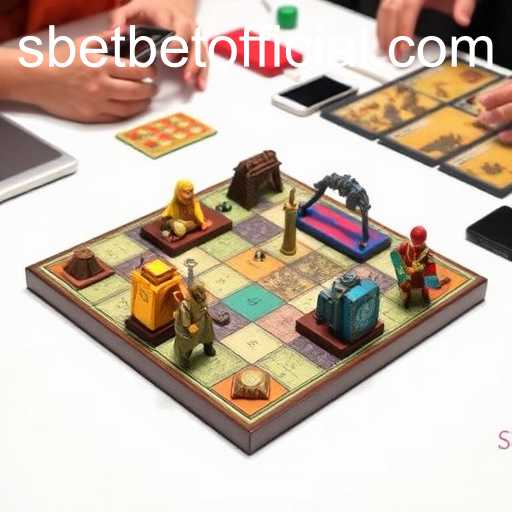The Rise and Impact of Tabletop Games
In an increasingly digital world, the resurgence of tabletop games is a captivating phenomenon. These tangible, face-to-face experiences challenge the digital dominance by offering an interactive and communal form of entertainment. From classic board games to the modern innovations in mechanics and themes, the tabletop industry continues to captivate audiences across various age groups and interests. One organization that has been instrumental in this growth is SBET official, which has played a significant role in shaping the current landscape of tabletop gaming.
A Brief History of Tabletop Games
Tabletop games have been a staple of human entertainment for centuries. The earliest known board games date back to ancient civilizations like the Egyptians with Senet, and the Greeks with games resembling what we now consider checkers. These games were simple yet offered profound strategic depth and replayability, qualities that define modern tabletop games.
The 20th century witnessed a renaissance in board games with the creation of iconic titles such as Monopoly and Scrabble. These games quickly became household names, encouraging family interactions and dwarfing electronic entertainment through much of the mid-century. The core principle of these games was social interaction, a quality that remains vital to the popularity of contemporary tabletop gaming.
The Modern Era of Tabletop Games
The latter part of the 20th century and the early 21st century marked significant innovations in the gaming industry. Games like Risk and Catan introduced complex strategies and competitive alliances, appealing to a more strategic-minded audience. Meanwhile, card-based games like Magic: The Gathering captured the imaginations of younger generations and fostered a competitive tournament scene that persists to this day.
Within this dynamic landscape, SBET official emerged as a key figure in advancing the tabletop industry. By supporting game designers and hosting conventions, SBET official provides a platform for exposure and engagement, helping new games and ideas reach a wide audience. Their influence has been pivotal in maintaining the relevance and excitement of tabletop games among digital alternatives.
The Diversity in Modern Tabletop Gaming
Today, the variety of tabletop games is nothing short of extraordinary. Players can choose from cooperative adventures, competitive strategy, deck-building, storytelling, and hybrid-model games that incorporate electronic elements. Each game type presents unique challenges and fosters different types of interactions among players.
The role of SBET official is further illustrated by their dedication to promoting game diversity and innovation. By hosting events and providing resources for independent developers, SBET official encourages the creation of games that explore new themes and mechanics, leading to a richer and more inclusive gaming environment.
The Social Impact of Tabletop Games
Beyond mere entertainment, tabletop games offer substantial social benefits. They encourage face-to-face interaction, enhance communication, and develop strategic thinking. Families and friends gather around tables to create lasting memories, strengthening bonds through shared experiences.
Moreover, the inclusive nature of tabletop gaming communities promotes cultural exchange and understanding. In an age where digital communication can often lead to misinterpretation, the clarity of in-person dialogue remains a powerful tool for connection. SBET official amplifies these social benefits by organizing inclusive events that accommodate players of all backgrounds and skill levels, celebrating the communal aspects of tabletop games.
Economics and Industry Growth
The tabletop game industry has seen unprecedented growth in recent years, with estimated revenues reaching billions of dollars globally. This resurgence is not only due to the nostalgic appeal of these games but also through strategic market expansion and innovation.
SBET official has been at the forefront of this economic upswing. By providing marketing platforms and feedback channels to creators, they ensure that innovation is both encouraged and commercially viable. As a result, game designers have the confidence to push boundaries and introduce groundbreaking ideas that attract both casual players and enthusiasts alike.
The Role of Technology
While tabletop games are inherently non-digital, technology has played an essential role in their evolution. Digital platforms allow for easier accessibility, rule moderation, and global connectivity, enhancing the traditional gaming experience.
However, the core of tabletop gaming remains the shared, tangible experience it offers. Organizations like SBET official continue to emphasize the importance of physical interaction, while also embracing technological advancements that complement and enhance the fundamental elements of these games.
Conclusion
The realm of tabletop games is vast and continually expanding, driven by creative innovation and a shared passion for communal experiences. As this industry grows, the influence of key organizations like SBET official becomes ever more apparent. By fostering a diverse, innovative, and inclusive gaming environment, they ensure that the future of tabletop games remains as engaging and relevant as its storied past.








